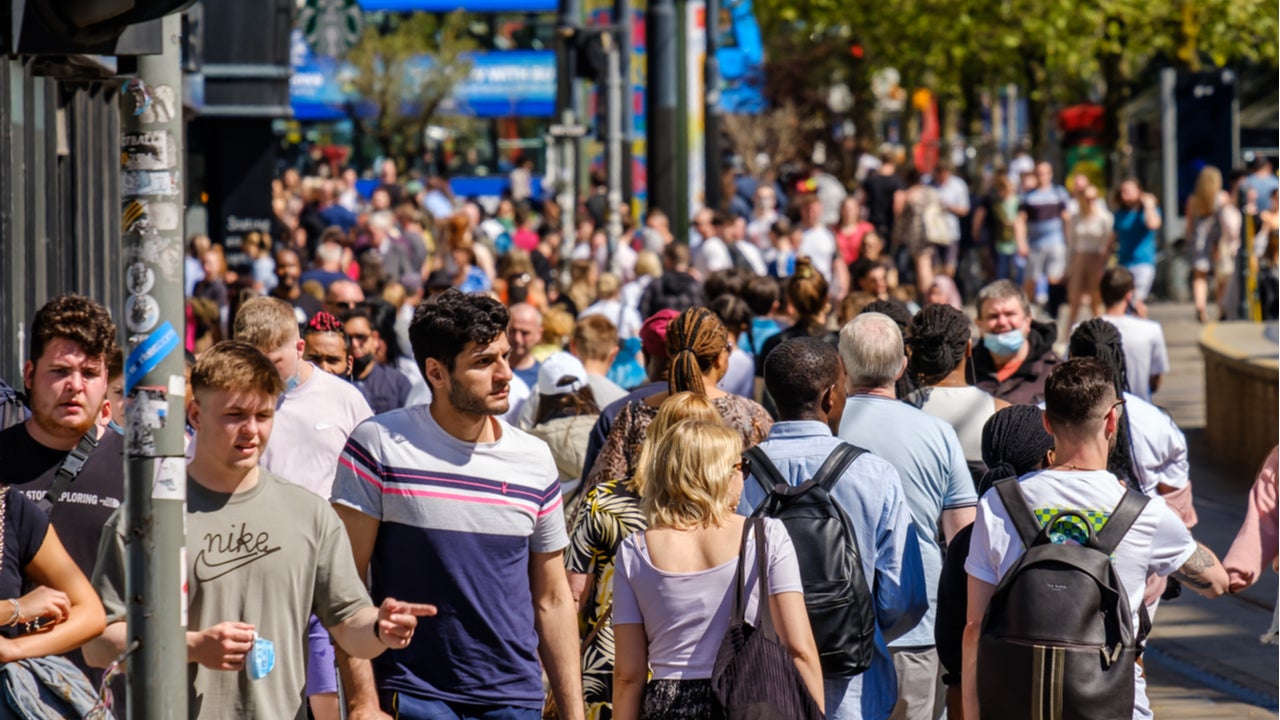Some statisticians believe that the UK economy has recovered all of the lost ground during the pandemic, but it will also take another two years of normal growth rates to return to pre-pandemic levels of activity.
Jonathan Portes
Jonathan Portes, a professor of economics and public policy at the School of Politics and Economics of King’s College, London and a senior fellow at the UK in a Changing Europe, retweeted an article shared by Chris Giles on the UK economy emerging weak from the Covid mist and battling inflation that is higher than in other G7 countries and no more emergency stimulus is required.
Giles points at the real problem in the UK being the discrepancies in data, where on the one hand, in terms of output, the UK’s Covid recovery in real terms is close to it European peers in the G7, but behind the US. On the contrary, the country’s performance looks weakened when the income or expenditure measures are used, with the UK economy trailing among the G7 countries.
Reports also suggest that the UK has had the highest level of implied domestic inflation during the Covid-19 pandemic, although it has been difficult for statisticians to adjust income, expenditure, and the value of output for inflation. Despite these discrepancies, whether nominal output, income or expenditure, UK’s economic performance is expected to be stronger internationally.
It's easy to throw your hands up in horror at all the discrepancies in the latest UK economic figures…
… but deeper down the story is one of probable weakness and higher inflation
 GlobalData Strategic Intelligence
GlobalData Strategic IntelligenceUS Tariffs are shifting - will you react or anticipate?
Don’t let policy changes catch you off guard. Stay proactive with real-time data and expert analysis.
By GlobalDataMy column https://t.co/Q8FqhZk3hv
— Chris Giles (@ChrisGiles_) November 11, 2021
Andrea Presbitero
Andrea Presbitero, senior economist at the International Monetary Fund (IMF), CEPR research fellow in the International Macroeconomics and Finance programme, associate fellow at SAIS Europe, and member of the Money and Finance Research (MoFiR), retweeted an article shared by Hyun Song Shin, economic adviser and head of research of the Bank for International Settlements (BIS), on the inflation surge caused by the Covid-19 pandemic having brought bottlenecks under the spotlight.
Bottlenecks in the supply of commodities, intermediate goods, and freight transport have given rise to unstable prices and delayed deliveries, experts opine. They began as pandemic-related supply disruptions amid strong demand from the global economic recovery, but have been aggravated by supply chain participants who are trying to build buffers in already lean production networks.
Inflationary pressures arising from bottlenecks are expected to be limited after relative prices have adjusted. However, consistent bottlenecks could trigger an upward shift in wage growth and inflation expectations, leading to sustained inflationary pressures.
The inflation surge has brought #bottlenecks under the spotlight
Today's #BIS_Bulletin takes a closer look at what's going on and what we might encounter going forward
A short thread followshttps://t.co/0NjE72Pd1l pic.twitter.com/Cb5yI2rvQ9
— Hyun Song Shin (@HyunSongShin) November 11, 2021
Stephany Griffith-Jones
Stephany Griffith-Jones, financial markets director at the Initiative for Policy Dialogue at Columbia University, and former professorial fellow at the Institute of Development Studies, retweeted an article shared by Daniela Gabor, associate professor in economics at the University of the West of England, Bristol, on Janos Kornai’s warning for the post-pandemic world.
Kornai, an economist, believed that if one-time emergency measures become routine, they could create other social problems. In his views, businesses in capitalist economies faced hard budget constraints, but in Hungary and other socialist economies they faced soft budget constraints. As a result, entrepreneurs were never worried about breaking even or generating profits. However, this led to chronic shortages as it removed the incentive to innovate or hold down costs.
Kornai thereby believed that workers and businesses would be better off if there were less-self-insurance that governments would respond in the same way in every economic downturn, like the pandemic, and greater dependence on a robust public safety net. Therefore, undermining incentives that make workers and entrepreneurs productive would ultimately make them worse off.
oh look @IsabellaMWeber carbon shock therapy must be around the corner,
we're reviving Janos Kornai's soft budget constraint in its crude 'markets efficient, state bad' version https://t.co/TZd0XDnUde
— Daniela Gabor (@DanielaGabor) November 11, 2021




